Announcing the 2021 Tournament of Books
The shortlist, judges, and Zombie poll for the 2021 Tournament of Books, presented by Field Notes.

The less said about 2020, the better. As for next year, well, more of the same? And yet it is our great pleasure to announce the 16 or so books (derived from our long list) that will be contending for the 17th edition of the Tournament of Books.
First, our many, many thanks to Field Notes, our presenting sponsor. Each season, Field Notes turns out yet another beautiful, original design—the same products we use as writers and editors—and we are honored to have their support. They’re also a great source of some really cool holiday gift ideas, maybe just a treat for yourself.
We’re also excited to welcome Bookshop as this year’s book sponsor. With Bookshop, your order can support a specific local bookstore or else contribute to an earnings pool that will be evenly distributed among independent bookstores (even those that don’t use Bookshop).
Finally, lots of love to our Sustaining Members. Their support makes this event a reality, so if you’re a Sustaining Member, thank you! And if you aren’t a Sustaining Member, please consider joining the motley Rooster crew today to keep this event running for years to come. (Also: Sustaining Members get 50 percent off everything at the TMN Store.)
Here’s how the ToB works. Each weekday in March, starting on March 8, two books from the shortlist are read and evaluated by one of our judges. One of the books is chosen to advance to the next round, and the judge explains at length how they came to their decision, then the commentariat—people like you—express their outrage and anguish, or celebration and joy. And the next day we do it all over again. This carries on, round after round, until one book wins the Rooster—an award that entails threatening the winning’s book author with live fowl—and then we all drink tequila.
If you’re new to the ToB, here’s more about how the event works. There’s also a brief history of significant Rooster moments.
Incidentally, we need your Zombie vote today, or before midnight (Eastern) on Dec. 30, 2020. That’s because from the play-in round to the eight opening round matches to the four quarterfinal matches through the two semifinal matches, the field gets whittled down to two finalists. But before those books can enter the championship, they must endure a “Zombie Round,” which restores two books that were eliminated previously during gameplay. As to which books return, it’s determined by a popular vote, right here, right now, using the form below.
And yes, we are doing a play-in round again. The theme this year: “Will 2020 last forever?”
We’ll have more news soon, so to stay updated on all things Rooster, make sure you’re signed up for the Rooster newsletter. (You can also grab our morning Headlines newsletter while you’re at it.) Good riddance 2020, and hello 2021!
The Shortlist for The 2021 Tournament of Books
Book descriptions are excerpted from publishers’ summaries and edited for length. We may get a cut from purchases made through the book links. Here is a spreadsheet of the full list. You can find all the shortlist titles on the 2021 Tournament of Books Bookshop list.
Breasts and Eggs by Mieko Kawakami
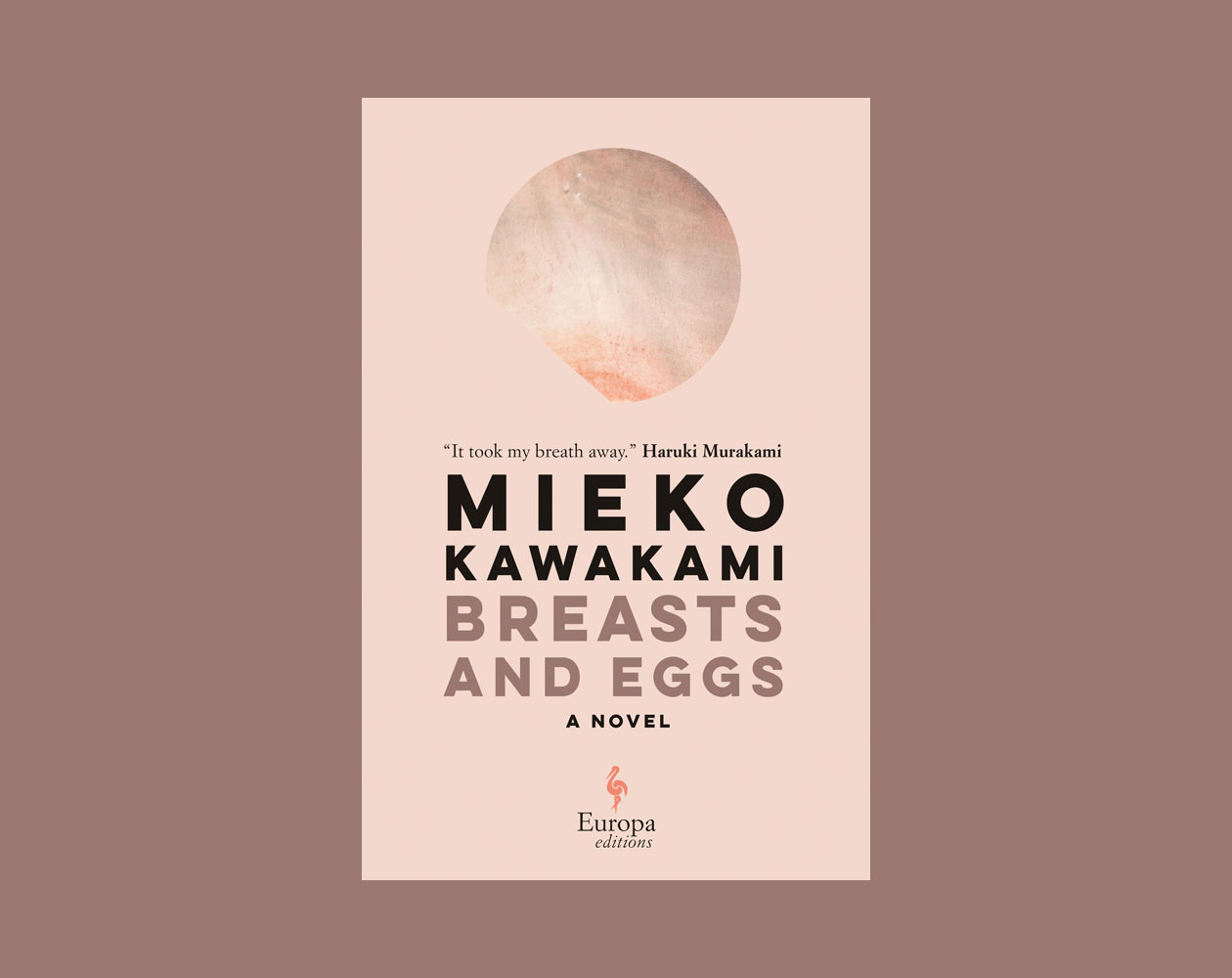
Makiko has traveled to Tokyo in search of an affordable breast enhancement procedure. She is accompanied by her daughter Midoriko, who has recently grown silent, finding herself unable to voice the vague yet overwhelming pressures associated with growing up. Her silence proves a catalyst for each woman to confront her fears and frustrations. On another hot summer’s day 10 years later, Makiko’s younger sister Natsu, on a journey back to her native city, struggles with her own indeterminate identity as she confronts anxieties about growing old alone and childless.
A Children’s Bible by Lydia Millet
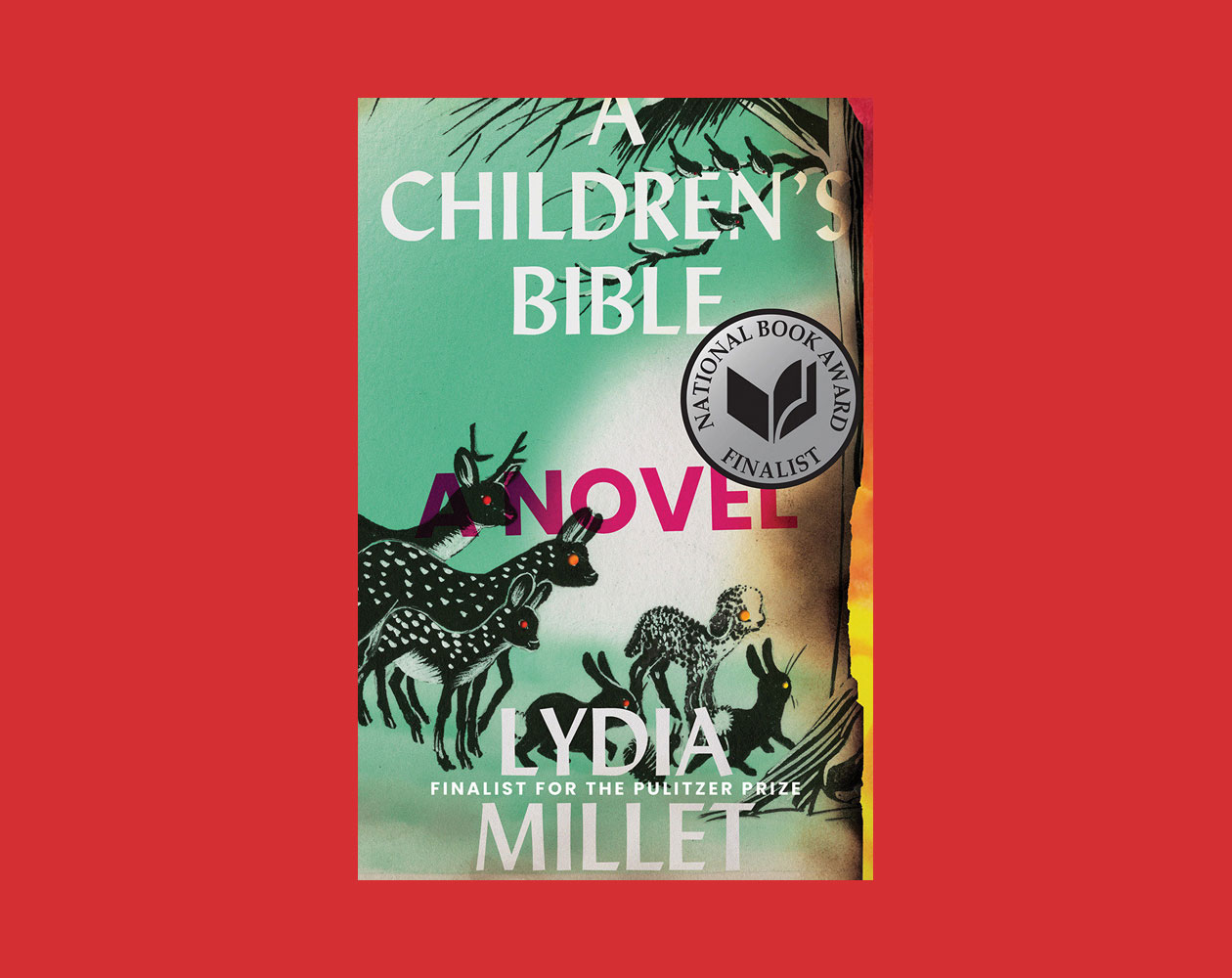
On a forced vacation with their families at a sprawling lakeside mansion, a group of 12 eerily mature children feel neglected and suffocated by their parents, who pass their days in a stupor of liquor, drugs, and sex. When a destructive storm descends on the summer estate, the group’s ringleaders—including Eve, who narrates the story—decide to run away, leading the younger ones on a dangerous foray into the apocalyptic chaos outside. As the scenes of devastation begin to mimic events in the dog-eared picture Bible carried around by her beloved little brother, Eve devotes herself to keeping him safe from harm.
Deacon King Kong by James McBride
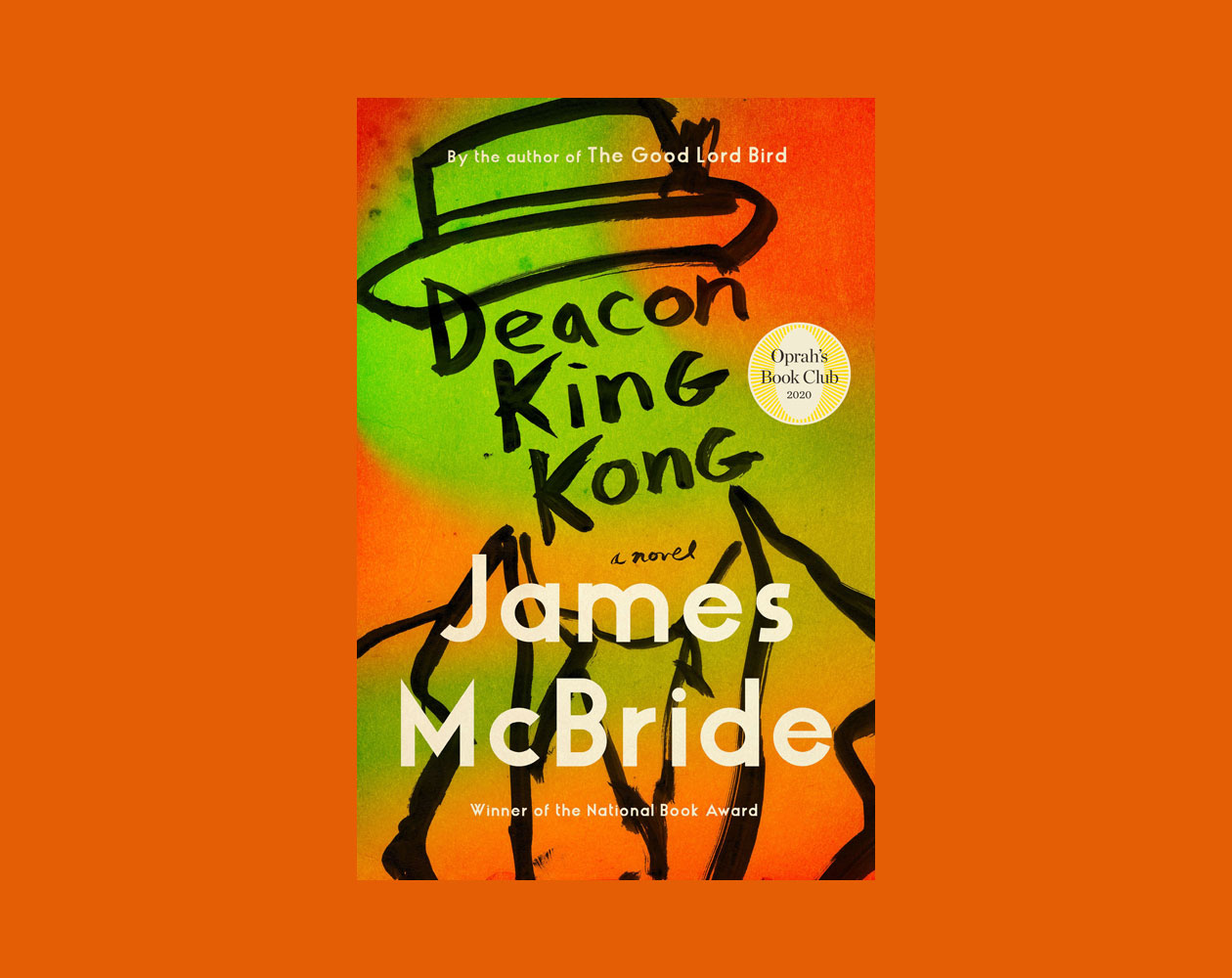
In September 1969, a fumbling, cranky old church deacon known as Sportcoat shuffles into the courtyard of the Cause Houses housing project in south Brooklyn, pulls a .38 from his pocket, and in front of everybody shoots the project’s drug dealer at point-blank range. The reasons for this desperate burst of violence and the consequences that spring from it are revealed in the people affected by the shooting: the victim, the African-American and Latinx residents who witnessed it, the white neighbors, the local cops assigned to investigate, the members of the Five Ends Baptist Church where Sportcoat was deacon, the neighborhood’s Italian mobsters, and Sportcoat himself.
Interior Chinatown by Charles Yu

Willis Wu doesn’t perceive himself as a protagonist even in his own life: He’s merely Generic Asian man. Sometimes he gets to be Background Oriental Making a Weird Face or even Disgraced Son, but he is always relegated to a prop. Yet every day he leaves his tiny room in a Chinatown SRO and enters the Golden Palace restaurant, where Black and White, a procedural cop show, is in perpetual production. He’s a bit player here, too, but he dreams of being Kung Fu Guy—the most respected role that anyone who looks like him can attain. At least that’s what he has been told, time and time again. Except by one person, his mother. Who says to him: Be more.
Leave the World Behind by Rumaan Alam
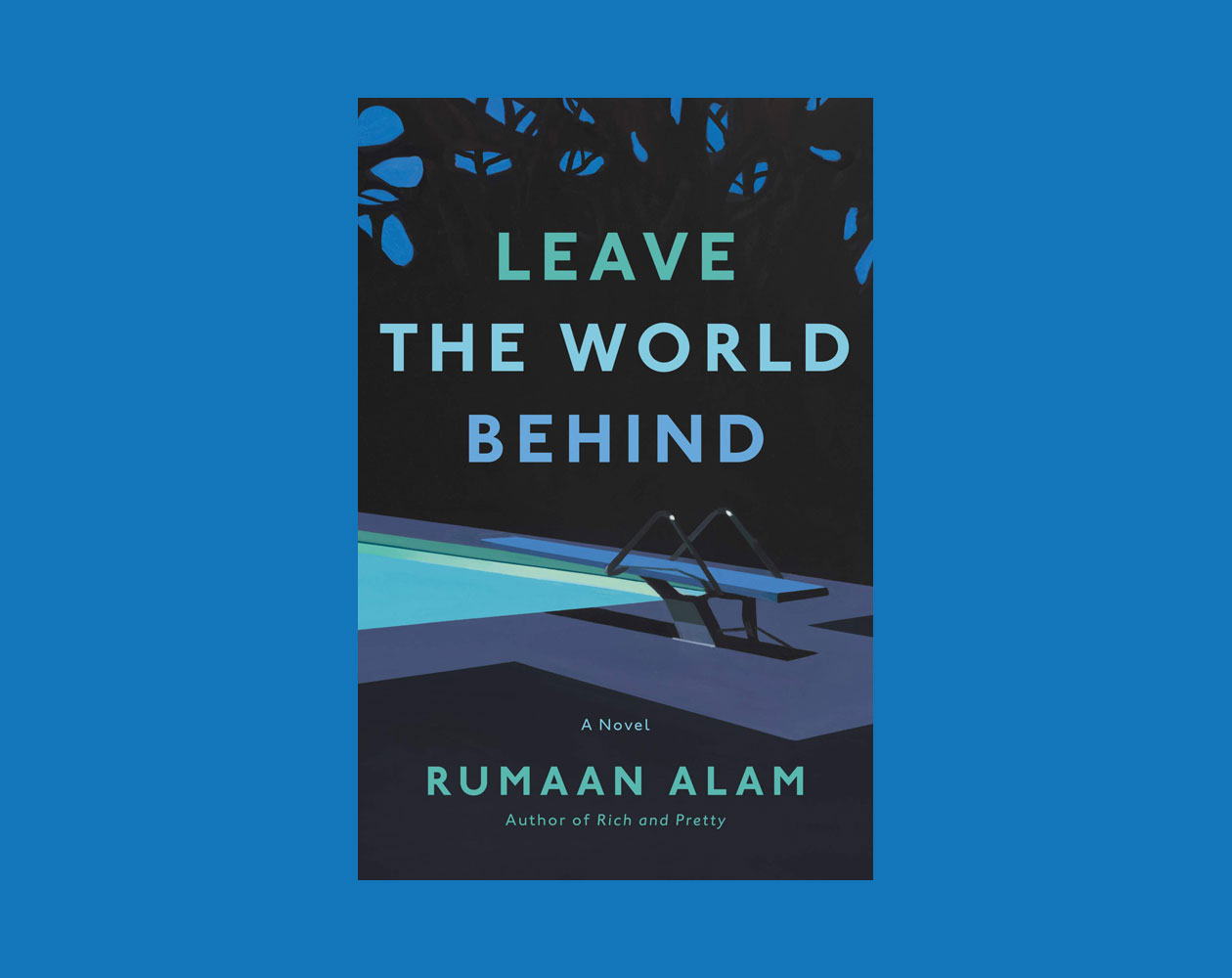
Amanda and Clay leave New York City for a quiet family vacation in a luxurious home on Long Island. But a late-night knock on the door from Ruth and G. H., an older couple who claim to own the home, breaks the spell. These strangers say a sudden blackout has swept New York, and they’ve come to the country in search of shelter. With the TV and internet down, and no cell phone service, the facts are unknowable. Should Amanda and Clay trust this intruding couple—and vice versa? What has happened back in New York? Is the vacation home, isolated from civilization, a truly safe place for their families? And are they safe from each other?
Luster by Raven Leilani
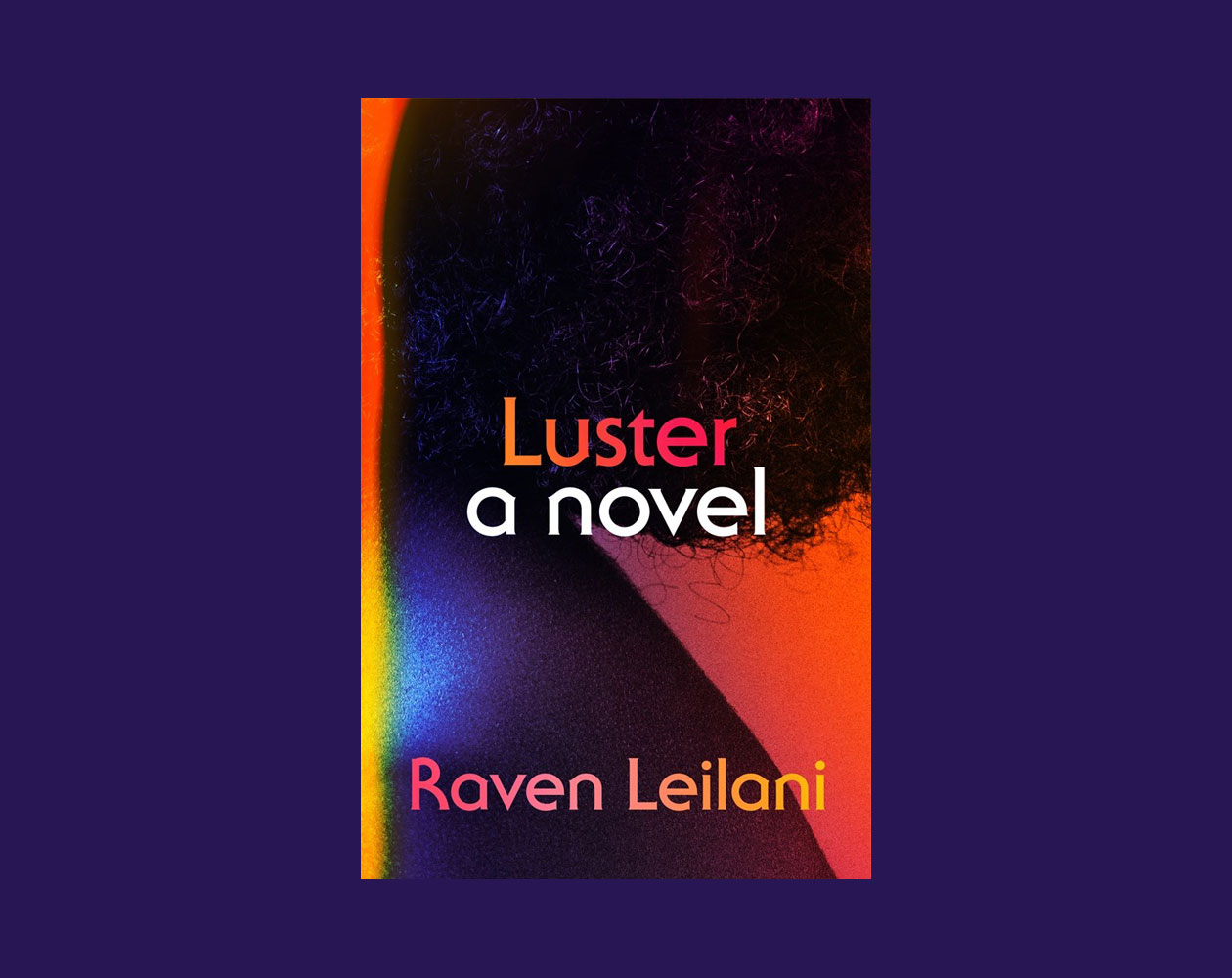
Edie is stumbling her way through her twenties—sharing a subpar apartment in Bushwick, clocking in and out of her admin job, making a series of inappropriate sexual choices. And then she meets Eric, a digital archivist with a family in New Jersey, including an autopsist wife who has agreed to an open marriage—with rules. As if navigating the constantly shifting landscapes of contemporary sexual manners and racial politics weren’t hard enough, Edie finds herself unemployed and invited into Eric’s home—though not by Eric. She becomes a hesitant ally to his wife and a de-facto role model to his adopted daughter. Edie may be the only Black woman young Akila knows.
Memorial by Bryan Washington
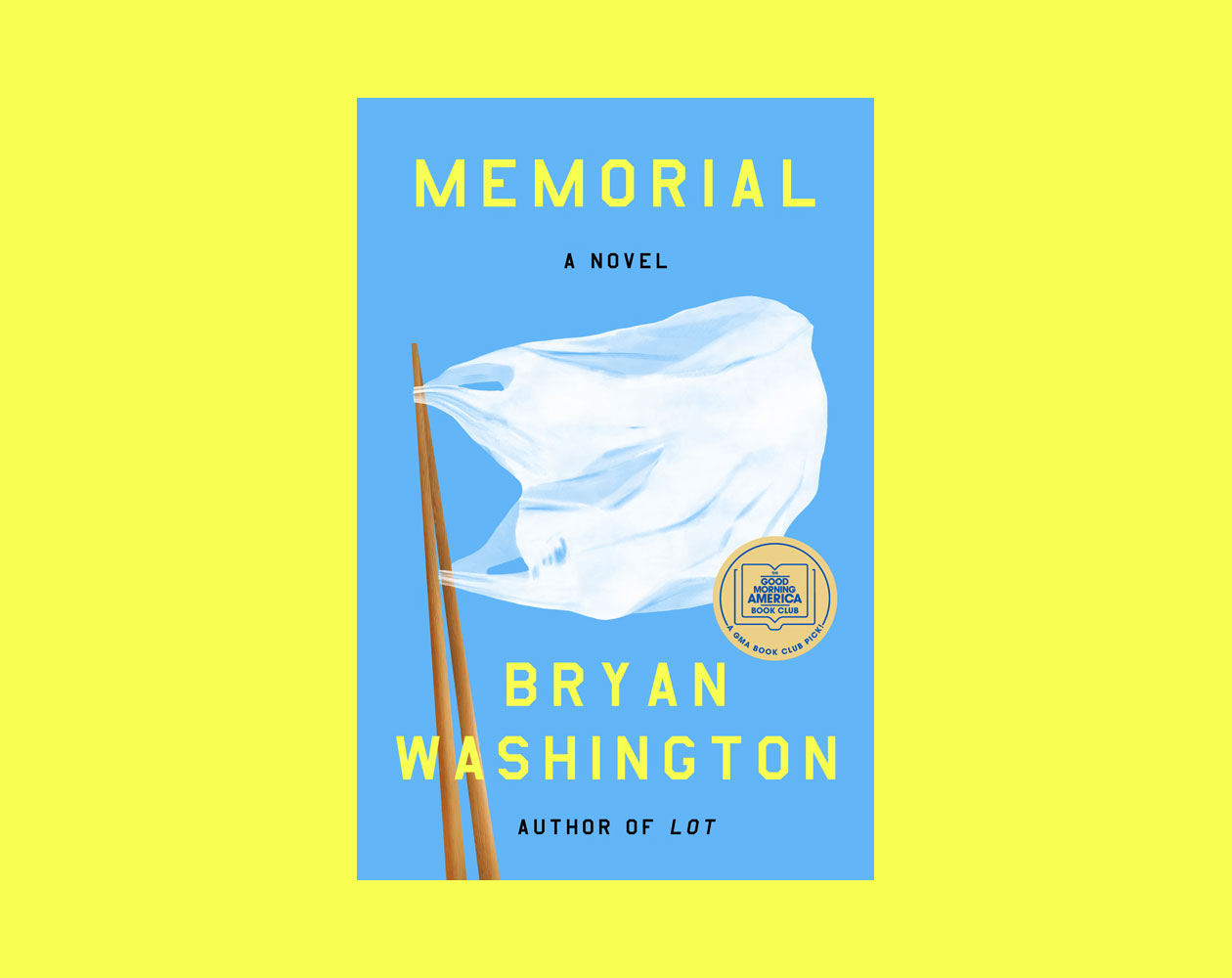
Benson and Mike live together in Houston. They’ve been together for a few years, but now they’re not sure why they’re still a couple. When Mike finds out his estranged father is dying in Osaka just as his acerbic Japanese mother, Mitsuko, arrives in Texas for a visit, Mike picks up and flies to Japan, where he discovers the truth about his family and his past. Without Mike’s immediate pull, Benson begins to push outwards, realizing he might just know what he wants out of life and have the goods to get it. Both men will change in ways that will either make them stronger together, or fracture everything they’ve ever known. And just maybe they’ll all be OK in the end.
Piranesi by Susanna Clarke
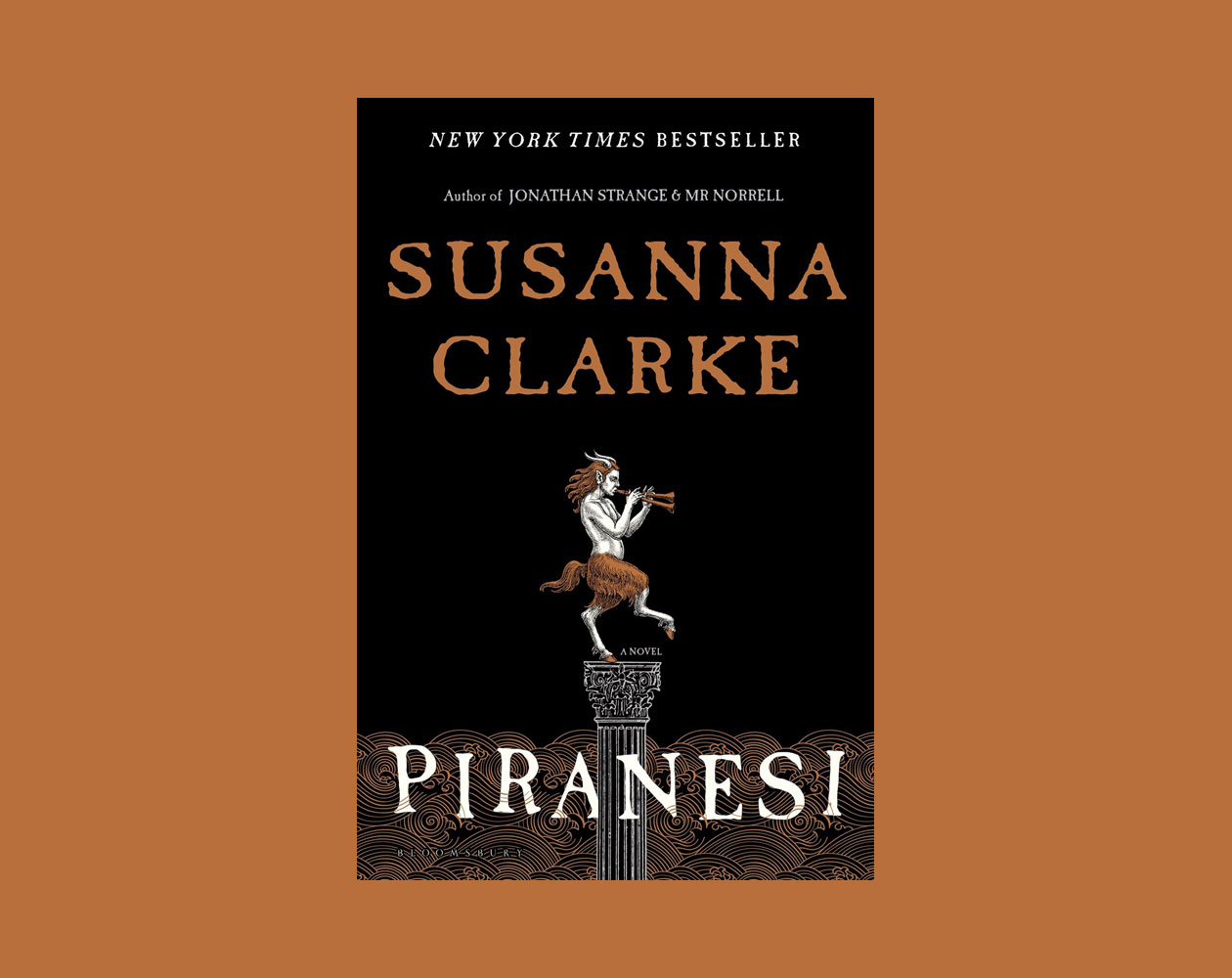
Piranesi’s house is no ordinary building: Its rooms are infinite, its corridors endless, its walls are lined with thousands upon thousands of statues, each one different from all the others. Within the labyrinth of halls an ocean is imprisoned; waves thunder up staircases, rooms are flooded in an instant. But Piranesi is not afraid; he lives to explore the house. There is one other person in the house—a man called The Other, who visits Piranesi twice a week and asks for help with research into A Great and Secret Knowledge. But as Piranesi explores, evidence emerges of another person, and a terrible truth begins to unravel, revealing a world beyond the one Piranesi has always known.
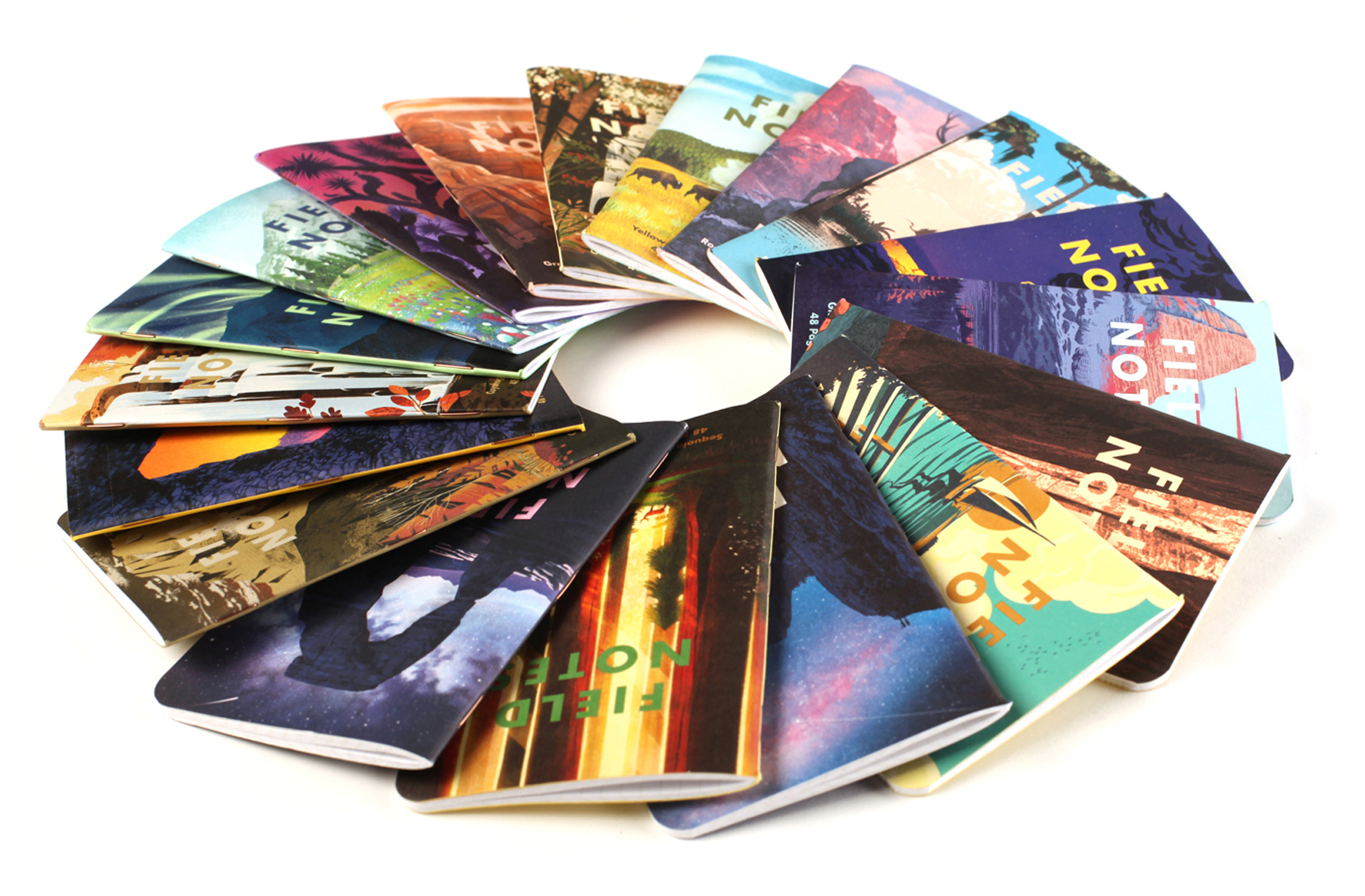
Field Notes® “National Parks” Edition is made up of six 3-Packs of Memo Books featuring 18 of America’s iconic National Parks. For gift-givers and completists, we have put together a custom, specially priced box set including the entire collection, and two old-school, water-transfer decals for your “Official Exploration Vehicles.” Plus, shipping is free in the USA!
There’s a full range of Note Books and related stationery products at fieldnotesbrand.com. Field Notes is proud to once again be a sponsor of the Tournament of Books.
Sharks in the Time of Saviors by Kawai Strong Washburn
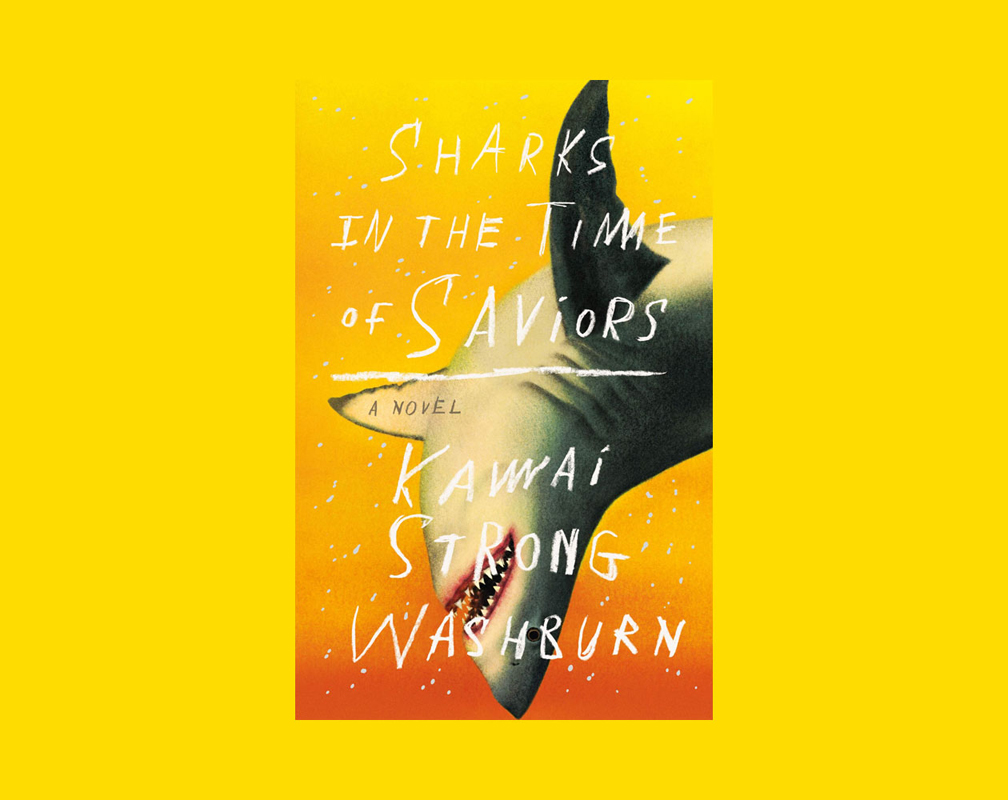
In 1995 Kailua-Kona, Hawai‘i, seven-year-old Nainoa Flores falls overboard into the Pacific Ocean. When a shiver of sharks appears in the water, everyone fears the worst. But Noa is gingerly delivered to his mother in the jaws of a shark, marking his story the stuff of legends. Noa’s family hails his rescue as a sign of the favor of ancient Hawaiian gods—a belief that appears reinforced by Noa’s puzzling new abilities. Now Noa, working as a paramedic in gritty Oregon neighborhoods, attempts to fathom his expanding abilities; in Washington, his older brother Dean hurtles into the world of elite college athletics; and in California, risk-addicted younger sister Kaui navigates unforgiving academic and wilderness landscapes to forge her independence from the family’s legacy.
Shuggie Bain by Douglas Stuart
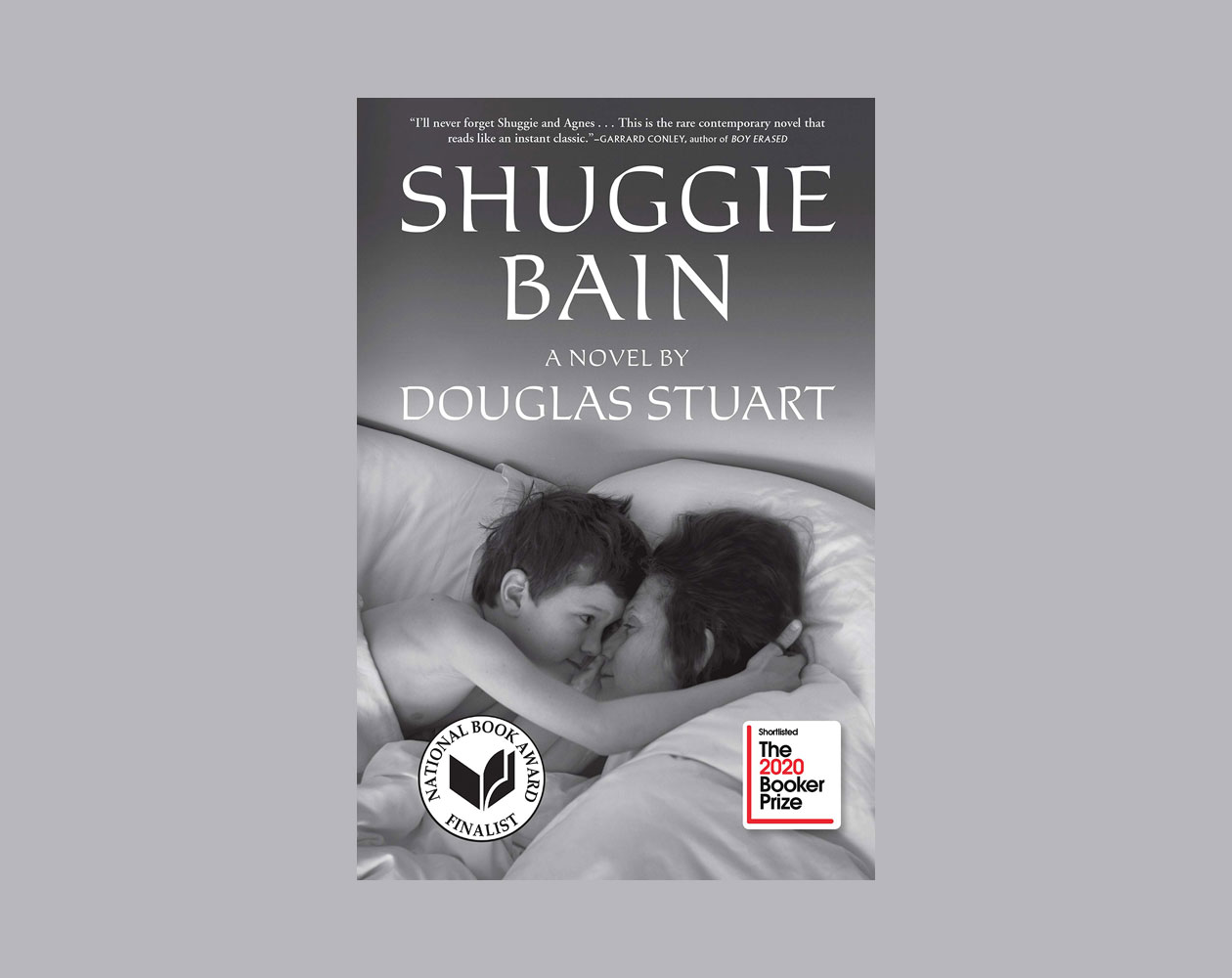
Shuggie’s mother Agnes is married to a philandering taxi-driver husband, but keeps her pride by looking good. Under the surface, however, Agnes finds increasing solace in drink, and she drains away each week’s benefits on cans of extra-strong lager hidden in handbags and poured into tea mugs. Agnes’s older children find their own ways to get a safe distance from their mother, abandoning Shuggie to care for her as she swings between alcoholic binges and sobriety. Shuggie is meanwhile struggling to somehow become the normal boy he desperately longs to be, but everyone has realized that he is “no right,” a boy with a secret that all but him can see.
Telephone by Percival Everett
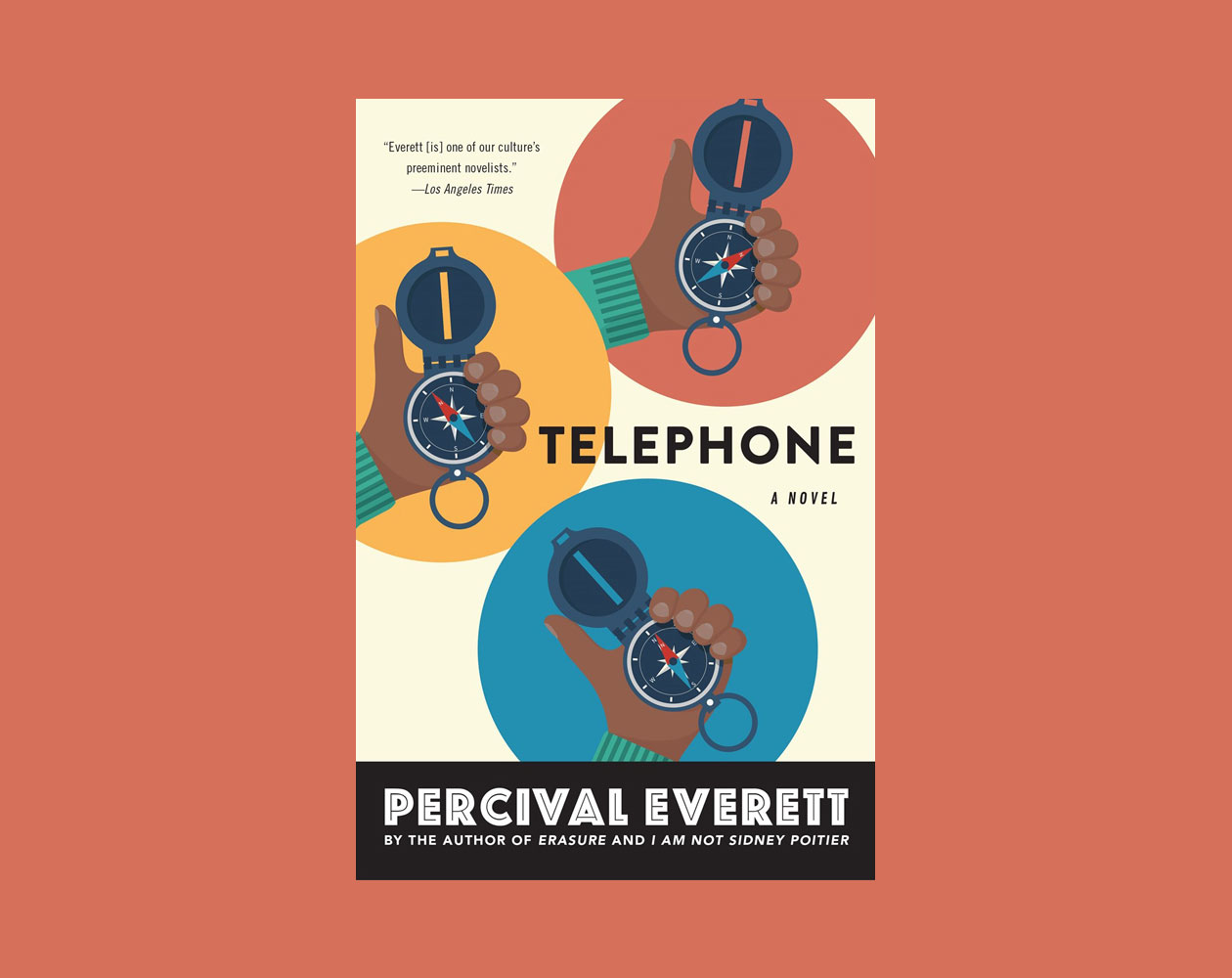
Zach Wells is a perpetually dissatisfied geologist-slash-paleobiologist. After a field trip to the desert yields nothing more than a colleague with a tenure problem and a student with an unwelcome crush on him, Wells returns home to find his world crumbling. His daughter has lost her edge at chess, she has developed mysterious eye problems, and her memory has lost its grasp. Powerless in the face of his daughter’s slow deterioration, he finds a mysterious note asking for help tucked into the pocket of a jacket he’s ordered off eBay. Desperate for someone to save, he sets off to New Mexico in secret on a quixotic rescue mission.
Tender Is the Flesh by Agustina Bazterrica
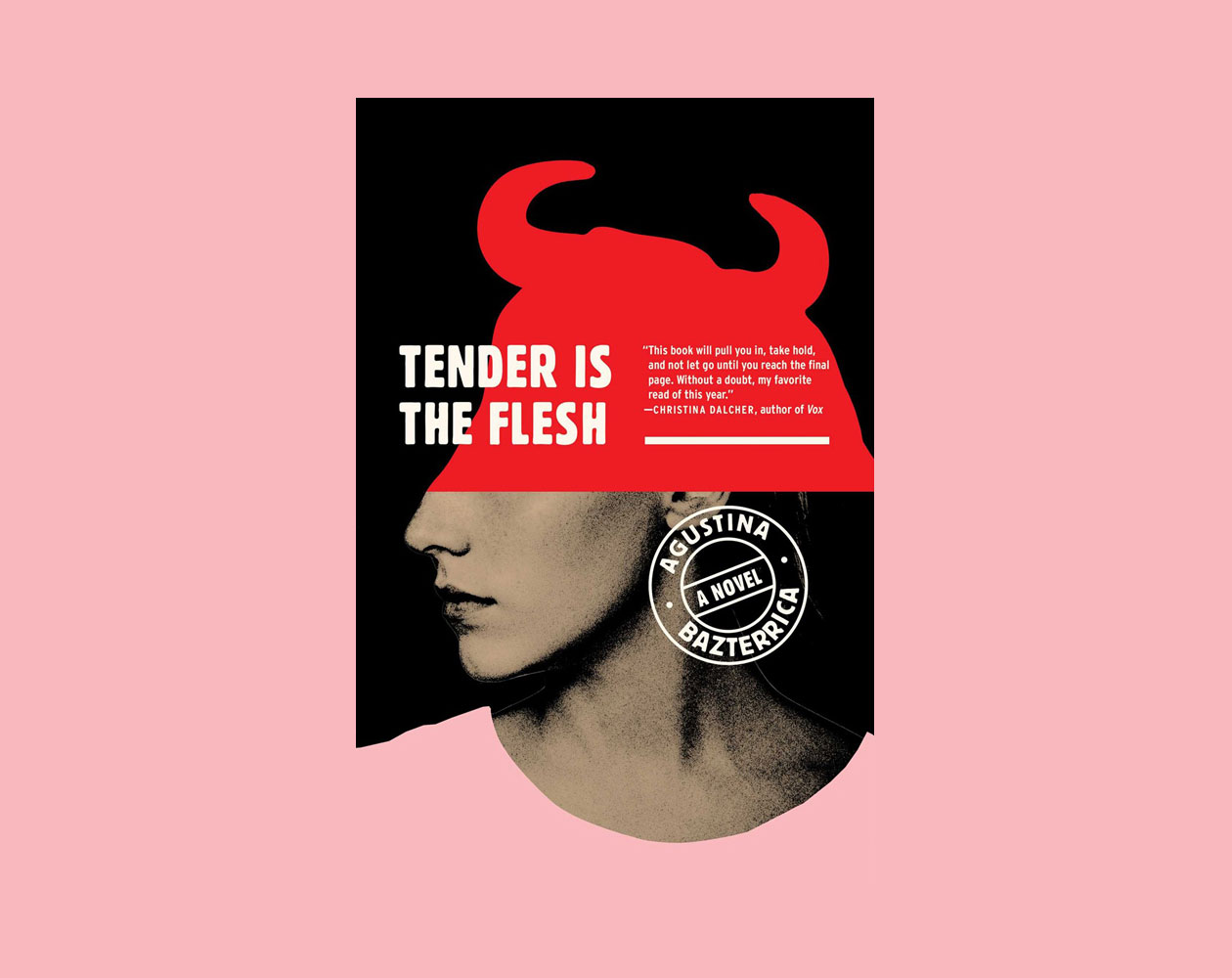
Marcos tries not to think too hard about how he makes a living. After all, it happened so quickly. First, it was reported that an infectious virus has made all animal meat poisonous to humans. Then governments initiated the “Transition.” Now, eating human meat—“special meat”—is legal. Marcos tries to stick to numbers, consignments, processing. Then one day he’s given a gift: a live specimen of the finest quality. Though he’s aware that any form of personal contact is forbidden on pain of death, little by little he starts to treat her like a human being. And soon, he becomes tortured by what has been lost—and what might still be saved. Warning: graphic content.
Transcendent Kingdom by Yaa Gyasi
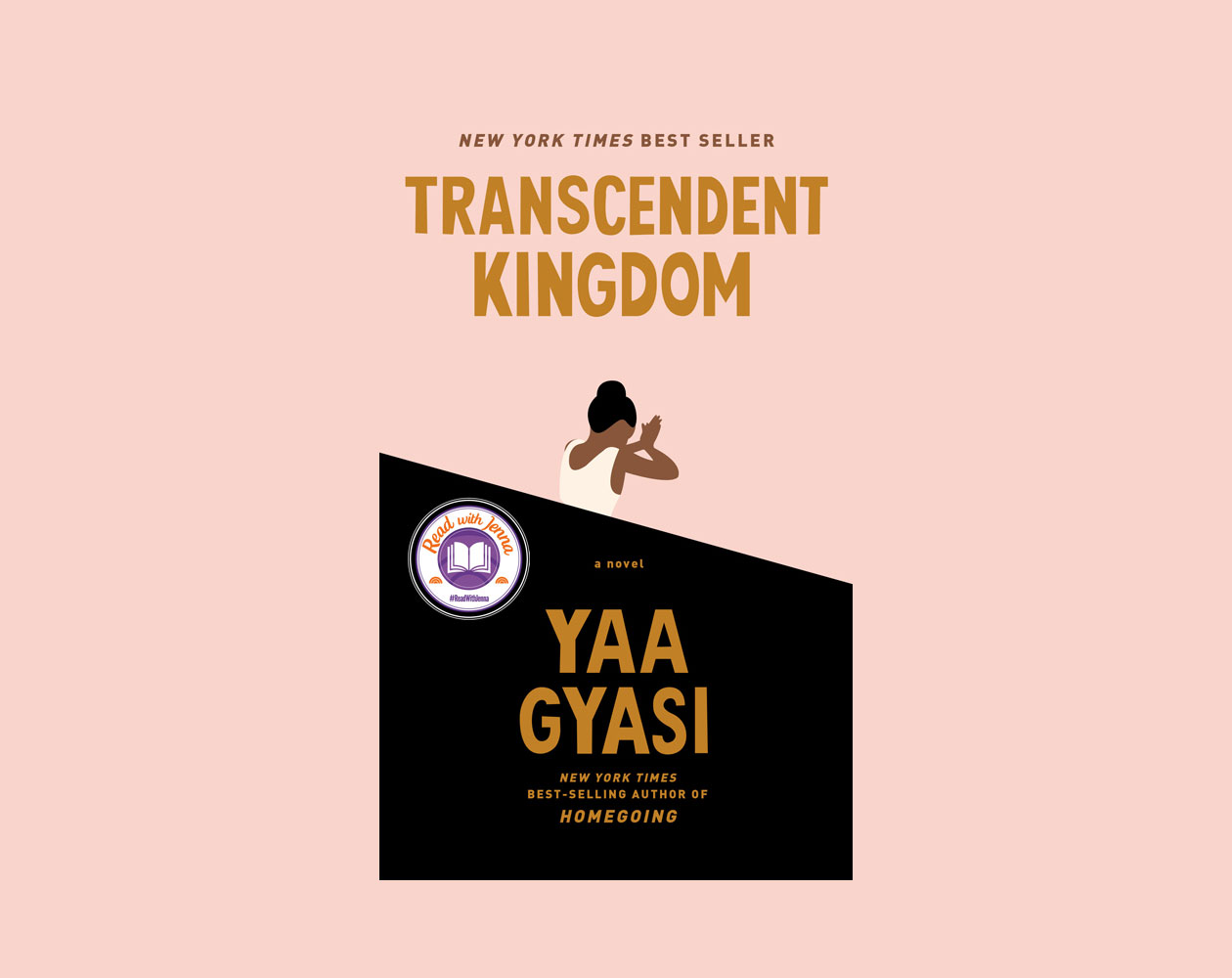
Gifty is a sixth-year PhD candidate in neuroscience, studying reward-seeking behavior in mice and the neural circuits of depression and addiction. Her brother, Nana, was a gifted high school athlete who died of a heroin overdose after an ankle injury left him hooked on OxyContin. Her suicidal mother is living in her bed. Gifty is determined to discover the scientific basis for the suffering she sees all around her. But even as she turns to the hard sciences to unlock the mystery of her family’s loss, she finds herself hungering for her childhood faith and grappling with the evangelical church in which she was raised, whose promise of salvation remains as tantalizing as it is elusive.
The Vanishing Half by Brit Bennett
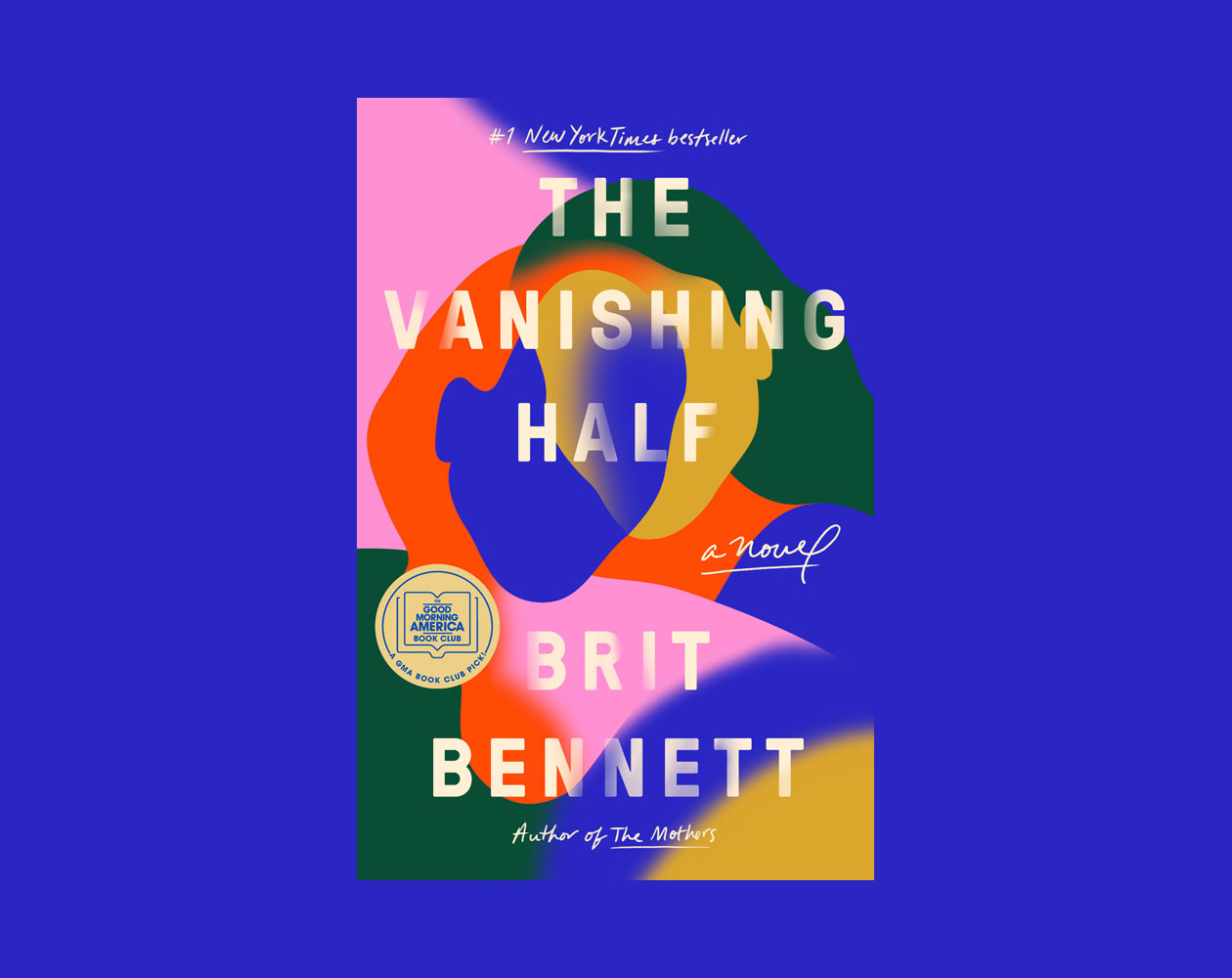
The Vignes twin sisters will always be identical. But after growing up together in a small, southern Black community and running away at age 16, it’s not just the shape of their daily lives that is different as adults, it’s everything: their families, their communities, their racial identities. Many years later, one sister lives with her Black daughter in the same southern town she once tried to escape. The other secretly passes for white, and her white husband knows nothing of her past. Still, even separated by so many miles and just as many lies, the fates of the twins remain intertwined. What will happen to the next generation, when their own daughters’ storylines intersect?
We Ride Upon Sticks by Quan Barry
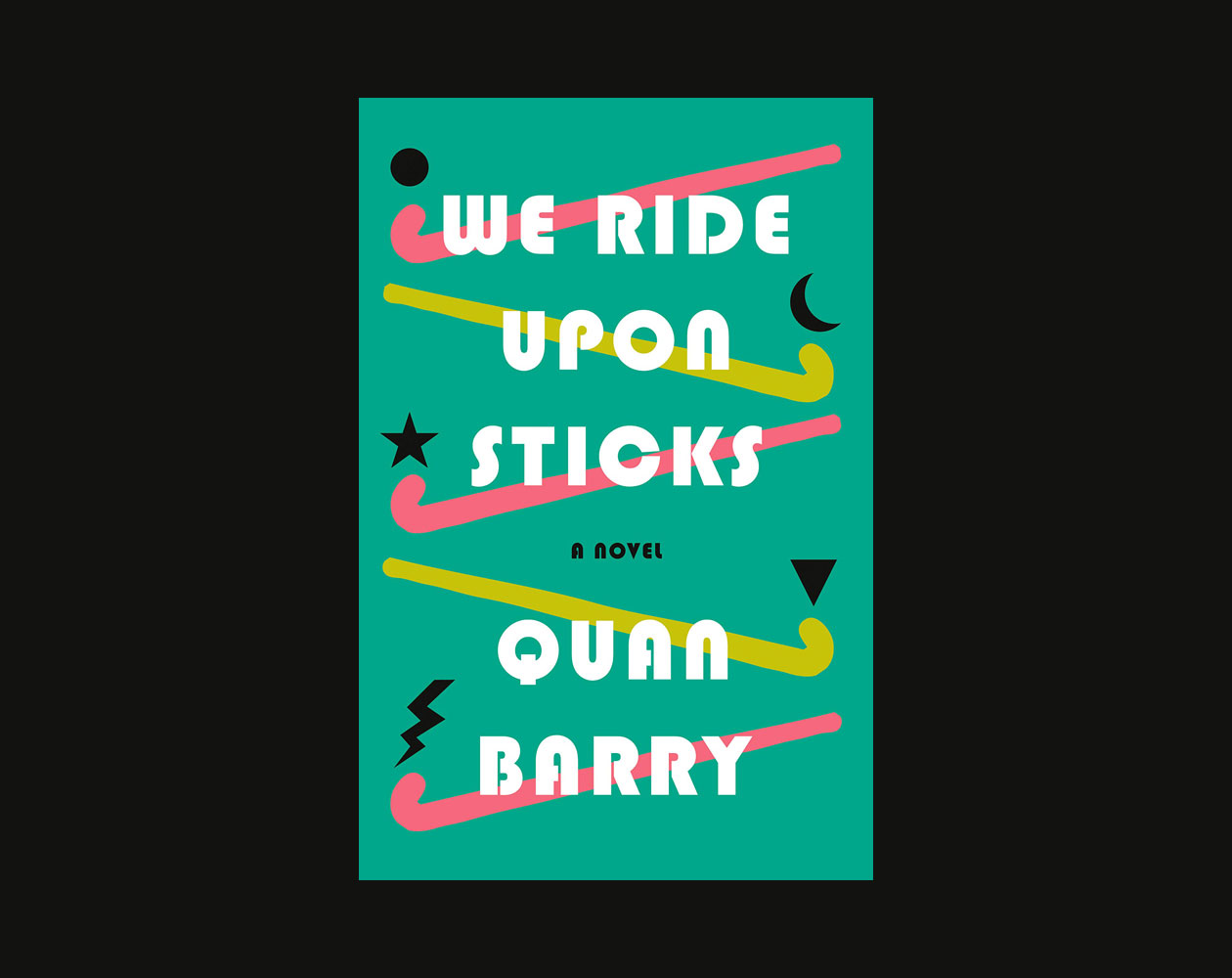
In the coastal town of Danvers, Mass., where the accusations began that led to the 1692 witch trials, the 1989 Danvers High School Falcons field hockey team will do anything to make it to the state finals—even if it means tapping into some devilishly dark powers. Helmed by good-girl captain Abby Putnam (a descendant of the infamous Salem accuser Ann Putnam) and her co-captain Jen Fiorenza (whose bleached-blonde “Claw” sees and knows all), the Falcons prove to be wily, original, and bold, flaunting society’s stale notions of femininity in order to find their glorious true selves through the crucible of team sport and, more importantly, friendship.
Play-in round books
The Down Days by Ilze Hugo
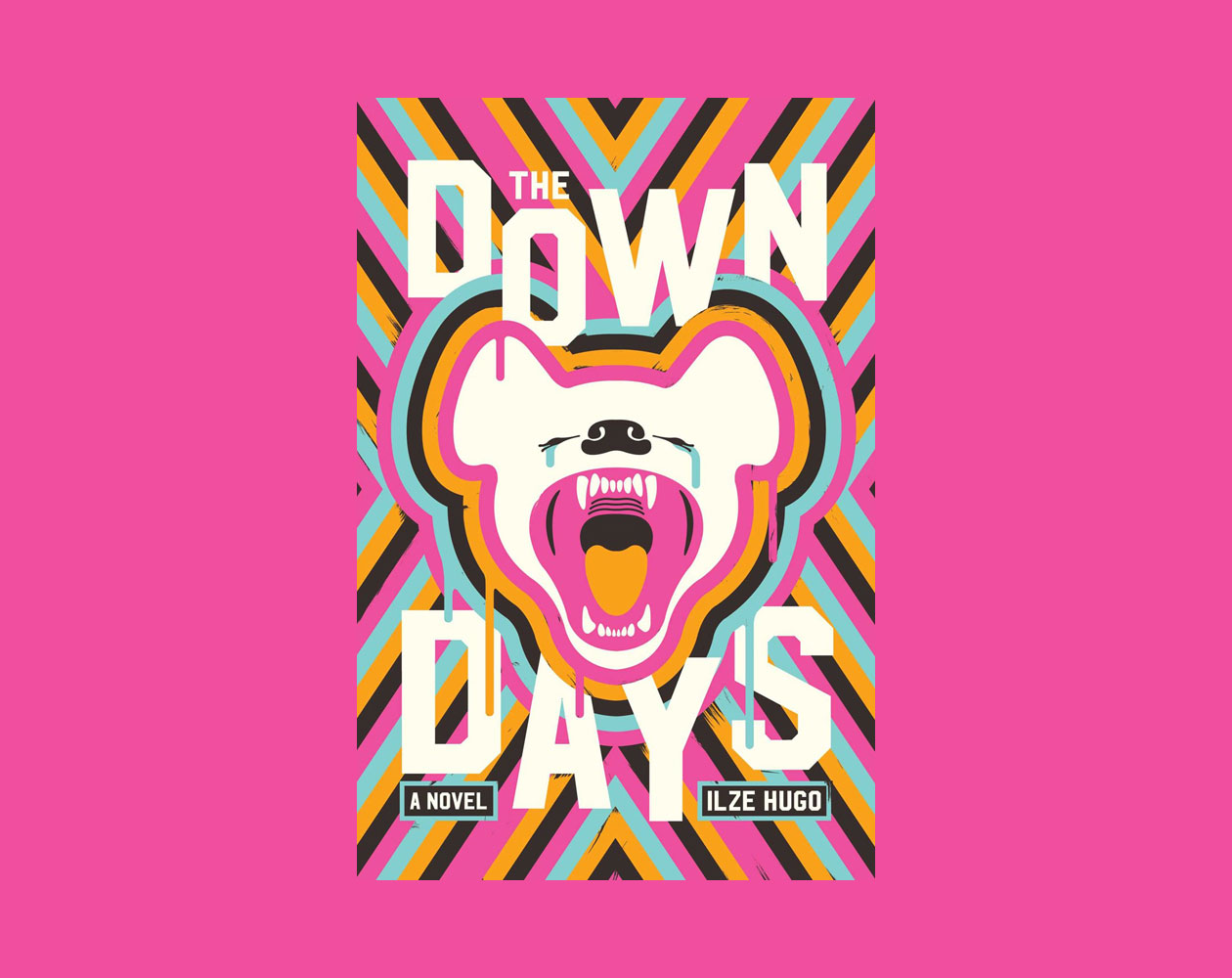
In the aftermath of a deadly outbreak, a city at the tip of Africa is losing its mind, with residents experiencing hallucinations and paranoia. During these strange days, Faith works as a fulltime corpse collector and a freelance “truthologist,” putting together disparate pieces of information to solve problems. But after Faith agrees to help an orphaned girl find her abducted baby brother, she begins to wonder whether the boy is even real. Meanwhile, a young man named Sans is so distracted by a glimpse of his dream woman that he lets a bag of money he owes his gang partners go missing—leaving him desperately searching for both and soon questioning his own sanity.
Red Pill by Hari Kunzru

After receiving a prestigious writing fellowship in Germany, our narrator arrives in a Berlin suburb. Instead of working on his book, he binge-watches Blue Lives—a violent cop show that becomes weirdly compelling in its bleak, Darwinian view of life—and soon begins to wonder if his writing has any value at all. When some friends drag him to a party where he meets Anton, the creator of Blue Lives, the narrator begins to believe that the two of them are involved in a cosmic battle, and that Anton is “red-pilling” his viewers—turning them toward an ugly, alt-rightish worldview—ultimately forcing the narrator to wonder if he is losing his mind.
The Resisters by Gish Jen
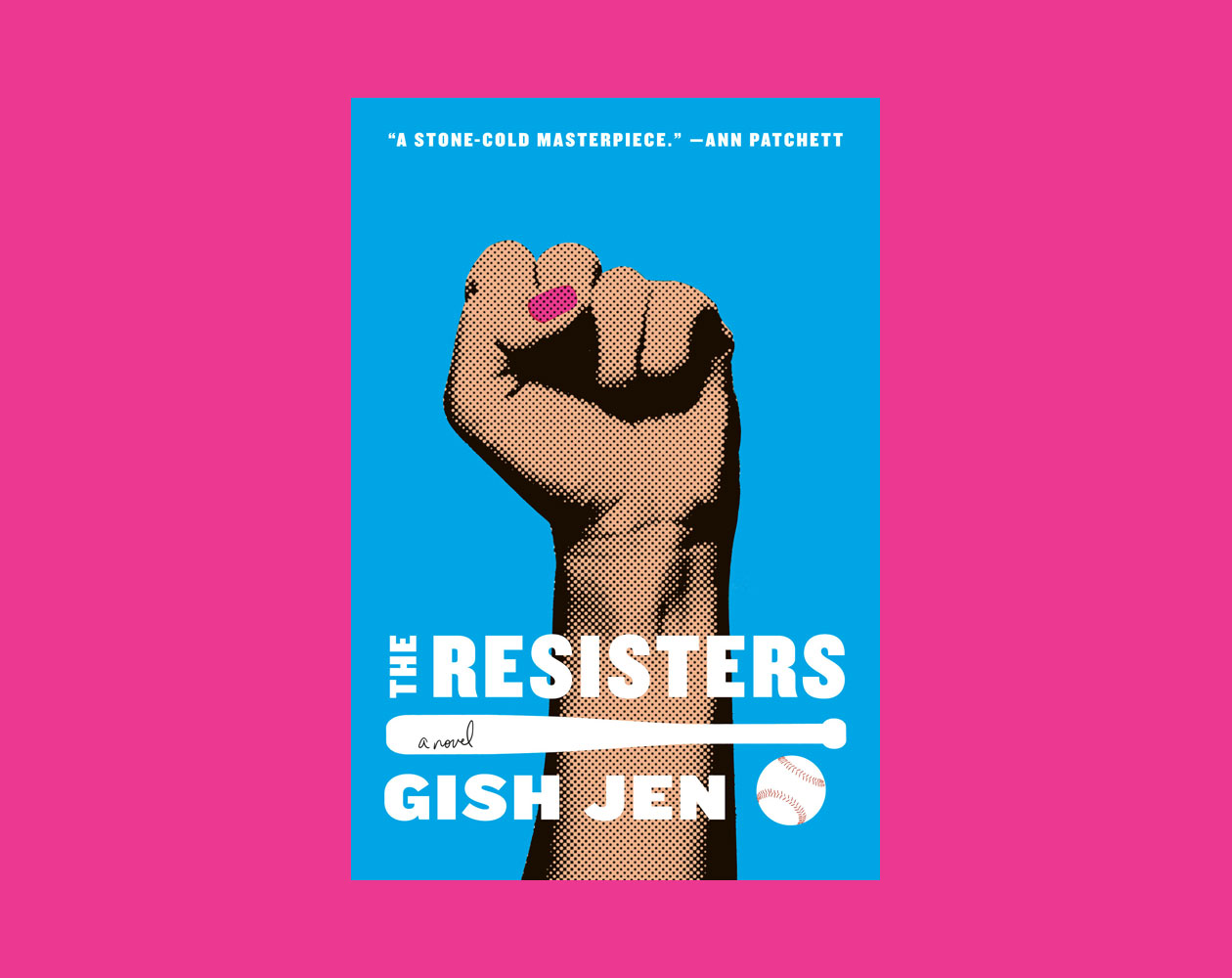
The time: not so long from now. The place: AutoAmerica. The people: Divided. The angel-fair “Netted” have jobs, and literally occupy the high ground. The “Surplus” live on swampland if they’re lucky, on water if they’re not. The story: To a Surplus couple—he once a professor, she still a lawyer—is born a Blasian girl with a golden arm. At two, Gwen is hurling her stuffed animals from the crib; by 10, she can hit whatever target she likes. When AutoAmerica rejoins the Olympics, though—with a special eye on beating ChinRussia—Gwen attracts interest. Soon she finds herself playing ball with the Netted even as her mother challenges the very foundations of this divided society.
Judges
Sufiya Abdur-Rahman is winner of the 2020 Iowa Prize for Literary Nonfiction. The University of Iowa Press will publish her memoir, Heir to the Crescent Moon, in fall 2021. Her essays and criticism have appeared in Catapult, The Common Online, Gay Mag, NPR, the Washington Post, and other publications. She is Creative Nonfiction Editor for Cherry Tree, a national literary journal, at Washington College, where she teaches nonfiction. / Twitter
Kamil Ahsan is a doctoral student in history at Yale, with a prior doctorate in biology from the University of Chicago. He is a journalist, writer, and editor-in-chief of the South Asian Avant-Garde. His work has appeared in NPR, the Nation, the Los Angeles Review of Books, the Baffler, among others. / Twitter
Nishant Batsha is a writer of fictions and histories. His writing has been published or is forthcoming in Eater, Narrative, and the Believer, among others. He lives in Buffalo, NY. / Twitter
Tobias Carroll is the managing editor of Vol.1 Brooklyn and writes the Watchlist column about books in translation for Words Without Borders. He is the author of three books: Political Sign, a work of nonfiction in the Object Lessons series; Reel, a novel; and Transitory, a story collection. He lives in Brooklyn. / Twitter
Catherine Chung is the author of The Tenth Muse and Forgotten Country. She has received an Honorable Mention for the PEN/Hemingway Award, and has been a National Endowment for the Arts Fellow, a Granta New Voice, a Director’s Visitor at the Institute for Advanced Study in Princeton, and a recipient of a Dorothy Sargent Rosenberg Prize in poetry. Her work has been published in the New York Times, the Guardian, Granta, and elsewhere.
Sonya Chung is the author of the novels The Loved Ones—a Kirkus Best Fiction, Indie Next List, BuzzFeed Books Recommends, and Library Journal Best Indie Fiction selection—and Long for This World (Scribner 2010). She has been a staff writer at the Millions since 2009. Currently she is deputy director at Film Forum, a nonprofit cinema in New York City, adjunct faculty in Warren Wilson’s MFA program, and writer-in-residence at Skidmore College. / Instagram, Twitter
Ingrid Rojas Contreras is the author of Fruit of the Drunken Tree, a silver medal winner in First Fiction from the California Book Awards, and a New York Times Book Review editor’s choice. Her writing has appeared in the New York Times Magazine, the Cut, the Believer, and elsewhere. A new work of nonfiction, a family memoir about her grandfather, a curandero from Colombia who it was said had the power to move clouds, is coming from Doubleday in 2022. / Twitter
Felicia Davin is the author of five novels, including the queer fantasy trilogy The Gardener’s Hand. The first novel in the trilogy, Thornfruit, was a 2018 finalist for Best Speculative Fiction at the Bisexual Book Awards, and her sci-fi romance Edge of Nowhere was a 2018 finalist for Best Bisexual Romance. Her short fiction has been featured in Lightspeed, Nature, and Heiresses of Russ 2016: The Year’s Best Lesbian Speculative Fiction. She has a PhD in French literature and has worked as both a teacher and a translator. She writes a weekly newsletter, Word Suitcase, about the words (mostly romance) and books (mostly romance) that are on her mind. She lives in Massachusetts. / Twitter
Rachelle Hampton is a culture writer and reporter at Slate. Her work has appeared in the New Republic, Pacific Standard, Smithsonian Magazine, and In These Times. / Twitter
Sean Hooks is originally from working-class New Jersey, about 10 miles west of New York City, and currently lives on the Westside of Los Angeles, near LAX. He holds a BA (liberal arts) from Drew University, an MFA (fiction) from the University of Nevada, Las Vegas, and an MA (English) from Loyola Marymount University. His stories, essays, articles, and reviews have appeared in a variety of publications.
Gabino Iglesias is a writer, literary critic, editor, and professor living in Austin. He is the author of Zero Saints and Coyote Songs. His work has been translated into five languages, optioned for film, nominated to the Stoker and Locus Awards, and won the Wonderland Book Award for Best Novel. His reviews appear in places like NPR, Publishers Weekly, Vol. 1 Brooklyn, the San Francisco Chronicle, the Los Angeles Review of Books, and other venues. He teaches creative writing and SNHU and offers low-cost online writing workshops. / Twitter
Beatrice Kilat is a writer, editor, and culture critic in the Bay Area. She is the former managing editor of Best American Nonrequired Reading and edited children’s fiction and comics at Lucasfilm. You can read her work in the Cut and elsewhere. / Twitter
ToB 2021 Reader Judge BW Kipnis is the creator and moderator of Moveable Feast book Klub and formerly blogged at Bookisshh. BW spent more than 10 years sharing and delving into books and words with Chicago’s inner city middle schoolers, and has been decolonizing and nudging the patriarchy from bookshelves since before hashtags and viral movements. Before that, BW worked briefly for CNN as a video journalist, produced a couple of cool college documentaries, and created a video/performance installation, “Media-a-Maze.” Today, BW is a native Chicagoan pretending not to currently reside in the Northshore suburbs.
Britta Lundin is an author of queer contemporary YA, including Ship It, and Like Other Girls (coming in 2021). She is also a TV writer for shows such as Riverdale (CW) and Betty (HBO). She spends her time playing basketball badly and practicing the Rubik’s Cube. She lives in Los Angeles with her wife, kid, and dog.
M.C. Mah is a critic, novelist, and chef of minimal talent at a restaurant where only his wife and child eat. His work has appeared in the Millions, Literary Hub, the Rumpus, and elsewhere. He lives in Berkeley, Calif. / Twitter
Grace Perry is a writer based in Los Angeles. Her work has appeared in BuzzFeed, the Cut, the New Yorker, Reductress, and elsewhere. Her debut essay collection, The 2000s Made Me Gay, comes out in June. / Twitter
Alexandra Schwartz is a staff writer at the New Yorker, where she writes about books, theatre, and a variety of other subjects that catch her interest. / Twitter
